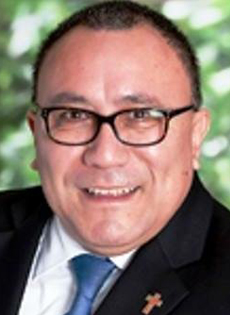
When justice degrades dignity
Monday, August 14, 2017
*Deacon Edgardo Farias
After 18 months with no executions, the state of Florida has scheduled the death of Mark Asay for Thursday, Aug. 24, at 6 p.m. Asay received two death sentences for the murders of Robert Lee Booker and Robert McDowell. If carried out, this will be the first time that Florida executes a white person for the murder of a black person.
Because of the Catholic Church’s teachings on the dignity of all human life, Florida’s bishops are asking Catholics once again to take part in prayer vigils at the time of the execution. These prayer vigils will witness to our belief that all human life is sacred, from the moment of conception to natural death; and that, in this day and age, capital punishment, as the Catechism states, should be “very rare, if not practically nonexistent.” (#2267)
Capital punishment is indeed cruel and unnecessary. It is the ultimate and definitive degradation of a person’s human dignity.
But after years of visiting people in prison, it is evident to me that the actions of the three components of the criminal justice system — police, courts and correctional — also are engaged in a systematic process of degrading human dignity.
The dignity of a person is degraded for violating rules or laws; then punishment is inflicted by eliminating his or her freedom, rights, privacy, and privileges — but without providing an effective rehabilitation treatment.
A methodological legalistic procedure is used to label, degrade, humiliate and dehumanize those accused or convicted of crimes. This degradation I would describe as one of the most severe, enduring and controversial violations of human rights. It is endemic at the local, state, national and world level, and institutionalized in such a way that no one objects.
The United States has come to rely on incarceration as a way to solve the serious social problems of people it does not want to face. The marginalized minorities are often labeled “preemptive criminals” by automatic attribution of criminal behavior to people of color, foreigners, homeless, substance abusers, mentally ill, and the illiterate.
It is crucial in the U.S. to advocate for the recovery of a quality of life in the community by reducing social inequalities, providing excellent social assistance, housing, education, physical and mental health services, and job opportunities with wages that allow people to live with dignity.
Restorative justice and community justice are new visions that offer hope for restoring victims, restoring offenders and restoring communities.
We need to reflect on the criminal justice system and its components. We need conversations with chaplains, wardens, police chiefs, jurists, theologians, advocates, social workers, psychologists, educators and sociologists throughout our cities, states and nation that will allow us to see, judge and act according to moral principles. We need to create therapeutical processes that bring about repentance, healing, forgiveness, and reconciliation based on the life and dignity of the human person.
Prayer vigils
The Archdiocese of Miami will hold prayer vigils for Mark Asay, who will be executed Thursday, Aug. 24, at 6 p.m. We will pray in the following places for the victims and the aggressors, for their families, and for an end to the death penalty:
Wednesday, August 23:
- 2-3 p.m., "Fe y Esperanza" program of Prison Ministry on Radio Paz 830AM
- 7 p.m., St. Dismas Outreach Center, St. Robert Bellarmine Mission, 2640 N.W. 34 St., Miami
Thursday, August 24:
- 7 p.m., St. Dismas Outreach Center, St. Joseph Haitian Mission, 1210 N.W. Sixth Ave., Pompano Beach
- After the 11:45 a.m. Mass at St. Martha Church, 9401 Biscayne Blvd., Miami Shores.

